When it comes to naming the greatest Indian actor ever, it's not just about tallying box office hits. It's a mix of personal preference, historical impact, and enduring cultural legacy. India, with its vibrant cinema industry, has produced some fascinating talents who've won hearts across generations.
Take Amitabh Bachchan, for instance. He isn't just called the 'Shahenshah' (emperor) of Bollywood for his towering roles and screen presence. With a career spanning over five decades, he's donned roles that range from a fiery young man leading revolution to a loving grandfather teaching life's true values. He’s been the face of changing times in Indian cinema.
But wait, there's Shah Rukh Khan, the King of Romance. His journey from TV to becoming one of the world's richest actors showcases not just charm, but a savvy understanding of the industry. How many of us associate timeless love stories with his roles in movies like 'Dilwale Dulhania Le Jayenge'?
- Iconic Actors and Their Significance
- Career Highlights and Breakthrough Roles
- Impact on Indian Cinema
- Cultural Influence and Legacy
- Decoding the Greatest: A Continuing Debate
Iconic Actors and Their Significance
India's film industry has been graced by many Indian actors who have left an indelible mark. Their contributions aren't just about box office numbers but also how they've enriched the fabric of Indian cinema. Each brought something unique—whether it was their style, acting prowess, or the ability to connect with audiences.
Amitabh Bachchan: The Unmatched Legend
Amitabh Bachchan's influence on Indian cinema can't be overstated. Known as the 'Shahenshah' of Bollywood, he rose to prominence in the 1970s with movies like 'Sholay' and 'Deewar,' which defined the angry young man archetype. His versatility is unmatched, portraying everything from a rebellious cop to a caring father. Over the years, he has won numerous awards, including the coveted Padma Vibhushan, showcasing his undeniable impact.
Shah Rukh Khan: The King of Romance
Shah Rukh Khan, often hailed as the 'King of Romance,' revolutionized how love stories are depicted in Bollywood. With hits like 'Dilwale Dulhania Le Jayenge' still running in theaters years after its release, his films emotionalize love and resilience. He isn't just a charming face but a smart businessman, owning a successful production company and IPL team. His journey from a TV actor to a global superstar inspires many aspiring actors.
Dilip Kumar: The Tragedy King
Before Bachchan and Khan, there was Dilip Kumar, the original 'Tragedy King' of Bollywood. With classics like 'Mughal-e-Azam' and 'Devdas,' he set the benchmark for method acting in Indian cinema. His style was a mix of intense emotion and subtle performance, making the audience deeply connect with his characters. Dilip Kumar was a pioneer, and his influence still lingers, guiding many present-day actors in how to imbue roles with depth.
The Legacy Continues
Each of these actors brought their distinct flair and changed the landscape of Indian cinema. Their legacy continues, influencing not just Bollywood legends but filmmakers and actors across the globe. While the debate rages on about who is truly the greatest, one can't deny the collective impact they've had, making Indian cinema a spectacle cherished worldwide.
Career Highlights and Breakthrough Roles
The journey to becoming the greatest Indian actor isn't just paved with box office success; it's built on a foundation of riveting performances. Let's dive into the defining moments of some of the most prominent Indian actors.
Amitabh Bachchan: The Rise of the Angry Young Man
Amitabh Bachchan's career catapulted with the film 'Zanjeer' in 1973. Known as the embodiment of India’s 'Angry Young Man,' he revolutionized how Indian cinema portrayed protagonists. Other monumental films like 'Deewar' and 'Sholay' followed, sealing his legendary status with roles that resonated with the common man's struggles and aspirations.
Shah Rukh Khan: Earning the Crown of Romance
Shah Rukh Khan entered Bollywood with 'Deewana' in 1992 and quickly captured hearts with his versatility and charismatic presence. His portrayal of Raj in 'Dilwale Dulhania Le Jayenge' redefined romance in Bollywood, and the movie still enjoys a special screening at Mumbai's Maratha Mandir even decades later. From antagonist roles in 'Baazigar' to the emotional rollercoaster in 'My Name Is Khan,' he proved his mettle across genres.
Dilip Kumar: The Tragedy King of Bollywood
Known as the 'Tragedy King,' Dilip Kumar's performances were marked by his intense method acting, an approach new to Indian actors of his time. His breakthrough came with 'Andaz' and 'Devdas,' where his portrayal of complex, emotional characters left an indelible mark on viewers. He's remembered not just for awards but for setting a gold standard in acting.
His influence is so profound that his acting style continues to inspire new generations. Even modern actors sometimes study his roles to refine their craft, proving that true talent never ages.
Stats Corner
| Actor | Breakthrough Year | Iconic Role |
|---|---|---|
| Amitabh Bachchan | 1973 | Zanjeer |
| Shah Rukh Khan | 1995 | Dilwale Dulhania Le Jayenge |
| Dilip Kumar | 1955 | Devdas |
Each of these actors brought something unique to the table, paving the way for others and shaping the landscape of Indian cinema. Their films are not just stories; they're milestones in the cinematic journey of a nation.
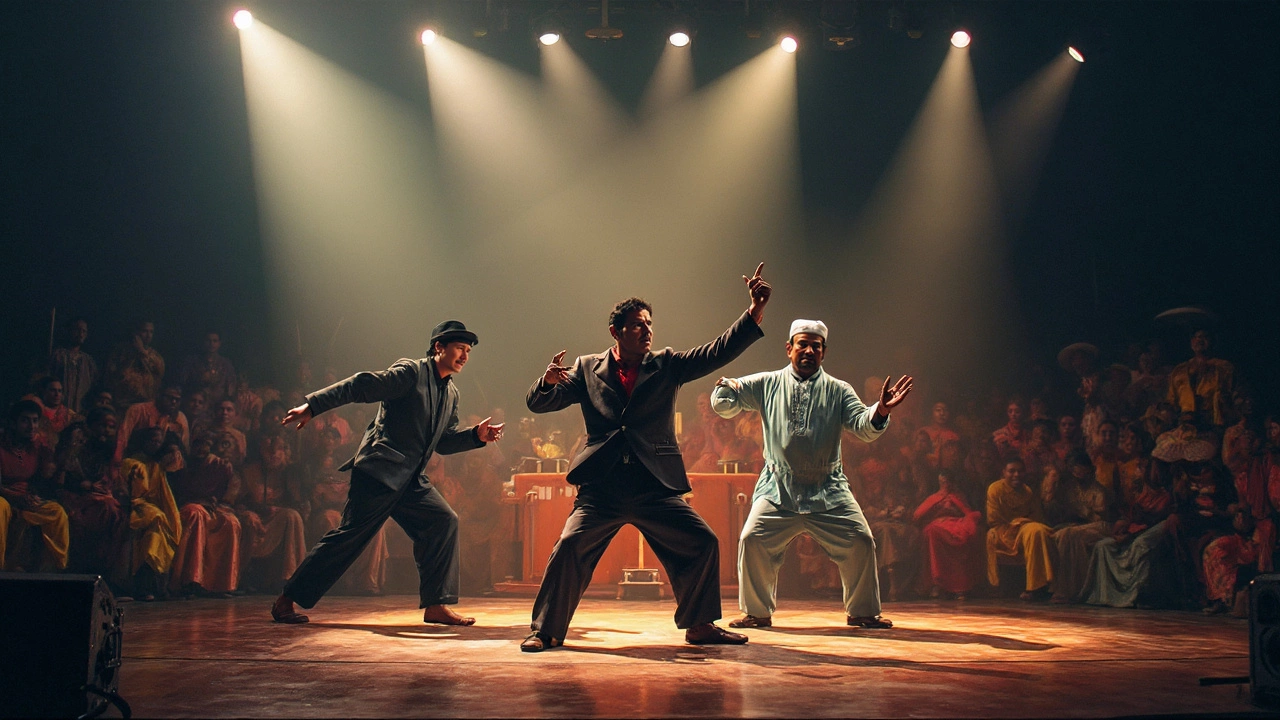
Impact on Indian Cinema
Indian cinema isn't just entertainment; it's a massive cultural force that reflects India's diversity and vibrant storytelling tradition. When discussing the impact, certain Indian actors have left an indelible mark.
Amitabh Bachchan, for example, revolutionized hindi cinema in the 1970s and 80s. His role in movies like 'Sholay' and 'Deewar' shaped the archetype of the 'angry young man', resonating with audiences during a time of socio-political change. These films not only entertained but also sparked conversations around justice and social reform.
Then there's Shah Rukh Khan, who turned the romantic genre on its head in the 90s. His movies, like 'Dil Se' and 'Kabhi Khushi Kabhie Gham', became a catalyst for a global Bollywood boom. He's not just an actor, but a brand that has taken Indian cinema to international platforms, as seen with his iconic cameo at the Cannes Film Festival.
Let's not forget older legends like Dilip Kumar, whose intense method acting in films like 'Mughal-e-Azam' set a benchmark that still inspires budding actors today. His work expanded the emotional range expected from Indian actors and redefined narrative depth in Indian movies.
What’s fascinating is how these actors didn’t just ride waves—they created them. They influenced directors and screenwriters to push boundaries, reflect social changes, and experiment with new storytelling techniques.
Their real contribution extends beyond the screen. Consider the Bollywood music we all groove to. This wouldn’t be possible without the iconic song and dance sequences led by these greats. Their films have given us timeless music scores that continue to be remixed and reimagined, bridging generations.
Here's a tidbit of data to chew on: Did you know that India's film industry produces over 1,800 films annually, making it the largest in the world by film output? This massive output wouldn't have gained such global traction without the pioneers who redefined the art form.
Through their groundbreaking work, they’ve not only transformed Indian cinema, but they've also crafted a cultural phenomenon beloved worldwide. Their legacy is such that you can watch any random selection of films from their catalog and see a tangible evolution in storytelling, acting, and even technology.
Cultural Influence and Legacy
When talking about the cultural influence of Indian actors, it’s not just about their roles in movies. It's about how they've mirrored society, influenced fashion, language, and even popular culture beyond film. Someone like Amitabh Bachchan changed the perception of an ‘angry young man’ in the 70s, reflecting public sentiment during a time of immense social change. His roles offered a voice to the frustrations simmering in the streets.
Meanwhile, Shah Rukh Khan became the poster boy for romance and aspiration in the 90s and 2000s. His movies often centered on love stories set against a backdrop of changing urban realities, making him relatable to the sprawling Indian diaspora worldwide. His iconic lines in films like 'Kabhi Khushi Kabhie Gham' have become part of pop culture lexicon. People quote him in daily conversations, and his influence extends even to the way men wove romantic gestures into relationships.
Actors like Dilip Kumar introduced nuanced performances during the golden era of Indian cinema. He made method acting a thing in Bollywood long before it was cool in Western cinema. His portrayal of complex characters contributed to a narrative style that many actors still emulate today.
Keep an eye out for the generational icons like Priyanka Chopra too, who have taken Indian cinema global. By crossing over to Hollywood and succeeding, she’s not only expanded her legacy but also made room for more diverse representations of Indians worldwide.
Here’s a glance at how these actors impacted the culture:
- Amitabh Bachchan: Reinvented the hero archetype; introduced deep baritone voiceover styles.
- Shah Rukh Khan: Defined modern romance; influenced fashion and wedding music trends.
- Dilip Kumar: Pioneered method acting; brought realism to his characters.
- Priyanka Chopra: Bridged Bollywood and Hollywood; emphasized global presence of Indian talent.
Just think about it: the movies they starred in didn’t just entertain—they told stories, inspired trends, and at times, even played a role in shaping societal norms. Their legacy is a testament to Indian cinema’s potential to influence hearts and minds, transcending borders and generations.
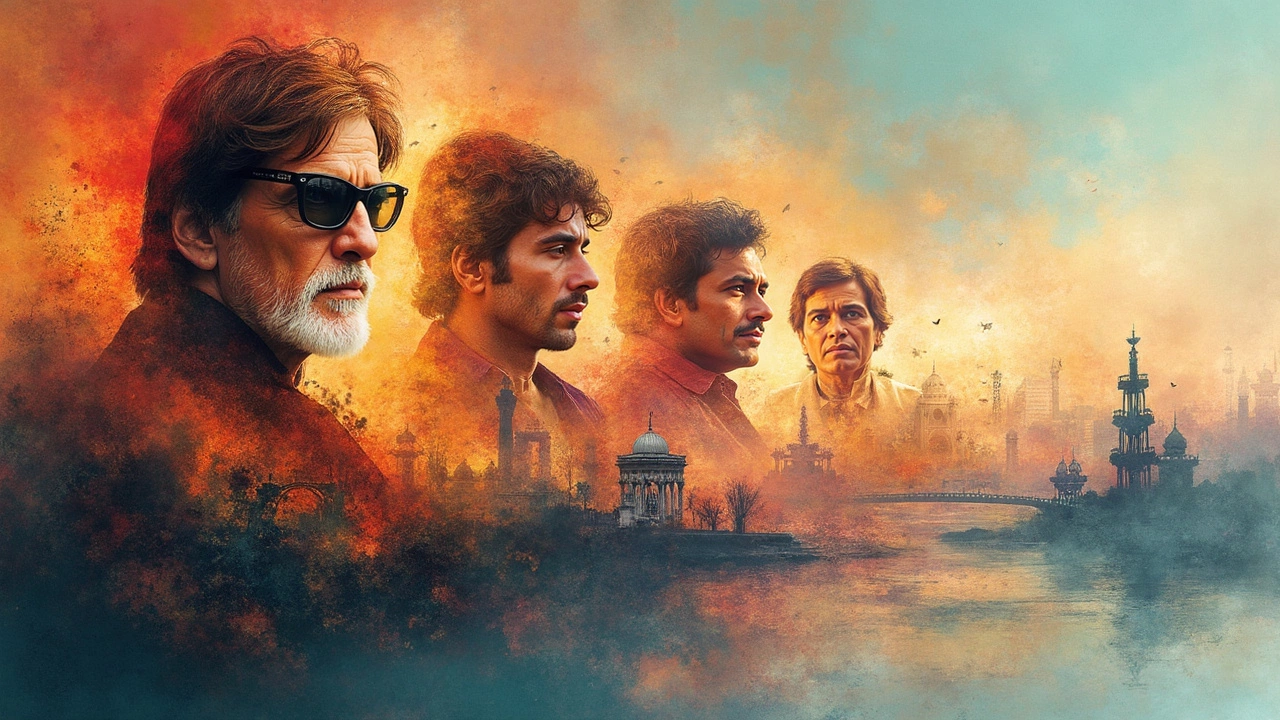
Decoding the Greatest: A Continuing Debate
Choosing the greatest Indian actor of all time is a bit like trying to pick the best dish in an elaborate Indian buffet—it depends on your taste! The debate continues to buzz, with names swapping top spots depending on who you talk to and when.
For some, it's the hypnotic charm of Bollywood legends like Dilip Kumar that wins hands down. Known as the 'Tragedy King', his nuanced performances in films like Mughal-e-Azam changed the way acting was perceived in Indian cinema. He set the stage for more method acting, influencing future generations.
Others might argue for Rajesh Khanna, who was the industry's first official 'superstar'. During his peak in the late '60s and early '70s, he had an uninterrupted string of hits. Not to forget Dev Anand, whose unique style and flair in the golden era of cinema still resonates with fans.
The conversation isn't complete without the mention of younger actors, like the blockbuster king Salman Khan or the versatile powerhouse, Aamir Khan. With films like Lagaan and Dangal, Aamir's projects have not only broken box-office records but have also bagged international accolades.
Impact Beyond the Silver Screen
One reason why this debate stays alive is the impact these actors have had beyond the cinema halls. Amitabh Bachchan's influence extends to social causes and even politics. Similarly, Shah Rukh Khan has been a TED speaker and is seen as a global ambassador of Indian cinema.
Indian cinema isn't static. It evolves, and so do the yardsticks for greatness. Today, platforms like Netflix and Amazon Prime introduce these actors to an even wider audience, adding a new dimension to their legacy.
The Unquantifiable Factor
Numbers can tell one part of the story—films, awards, honors—but there’s also the historical and emotional impact each actor has had on the audience. An actor's unparalleled connection with fans often tips the scale.
| Actor | Awards | Iconic Roles |
|---|---|---|
| Amitabh Bachchan | 15 Filmfare Awards | Deewar, Sholay |
| Shah Rukh Khan | 14 Filmfare Awards | DDLJ, My Name Is Khan |
Ultimately, the greatest actor is often the one whose roles have left an indelible mark on the viewers. And that's something numbers can't measure.
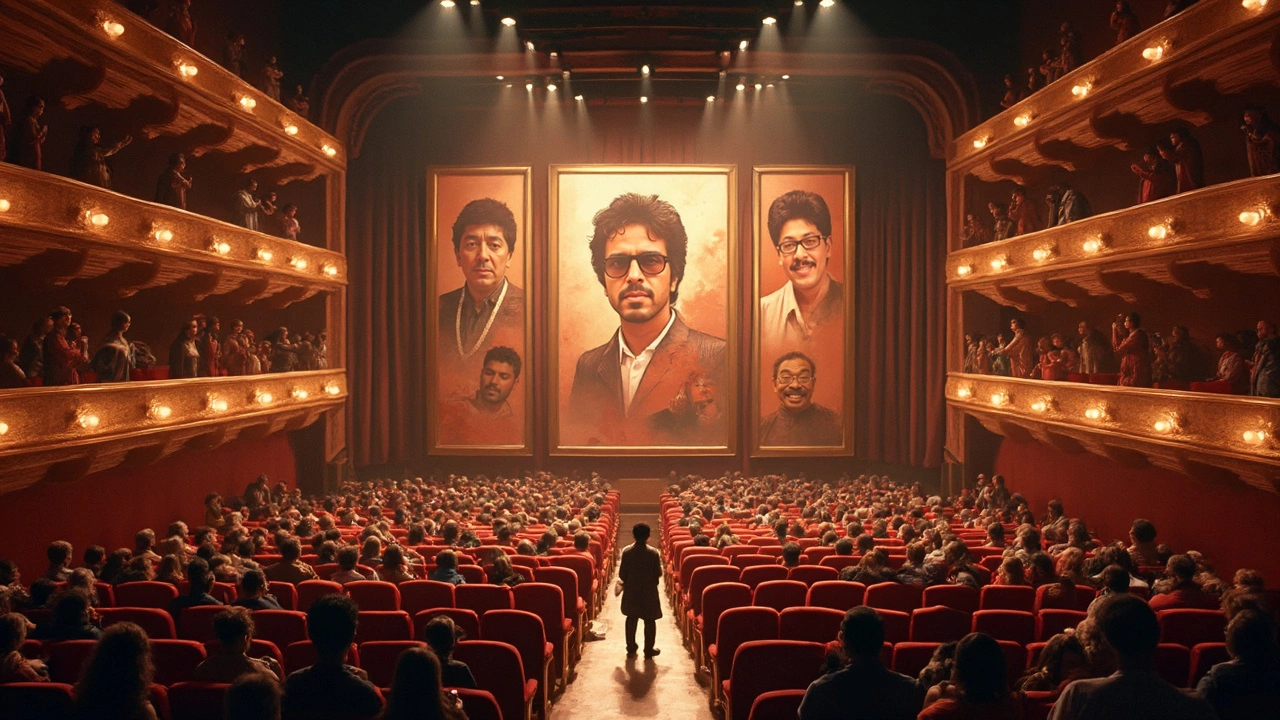

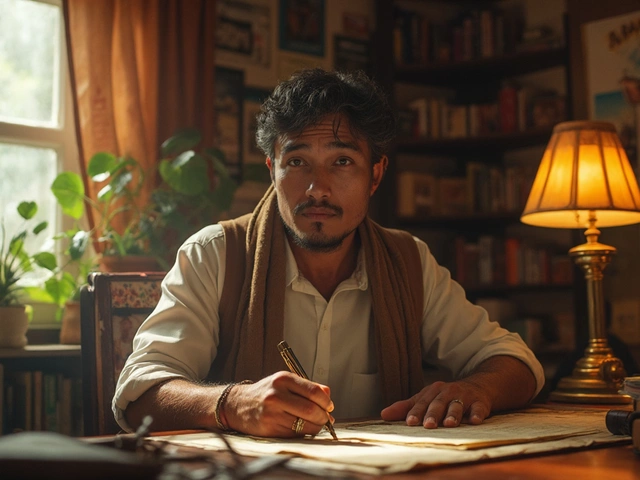
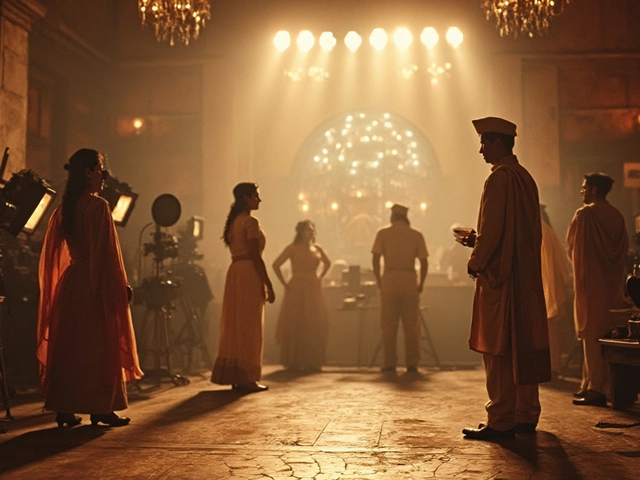
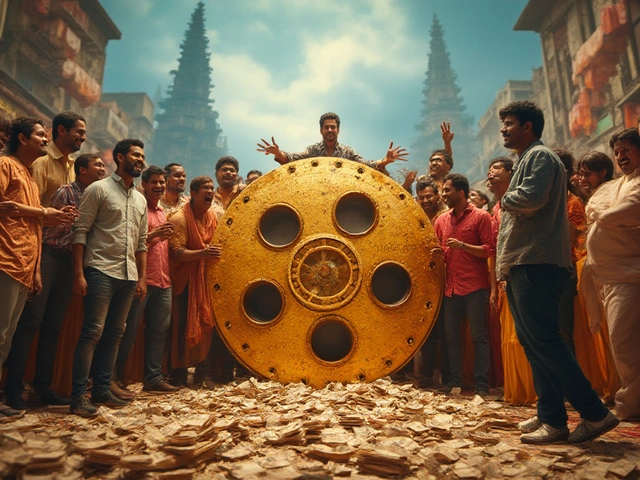
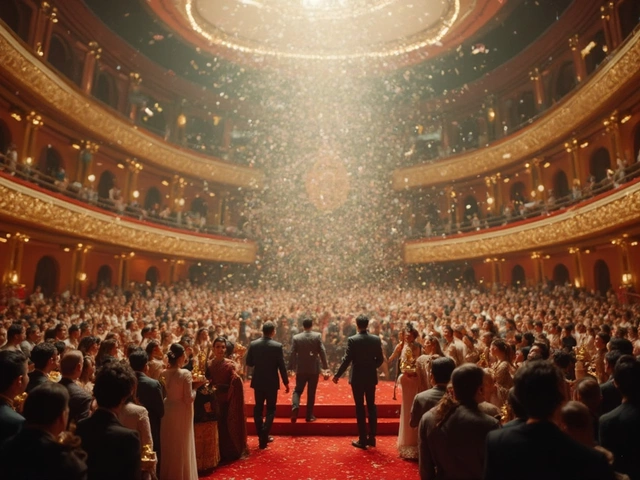
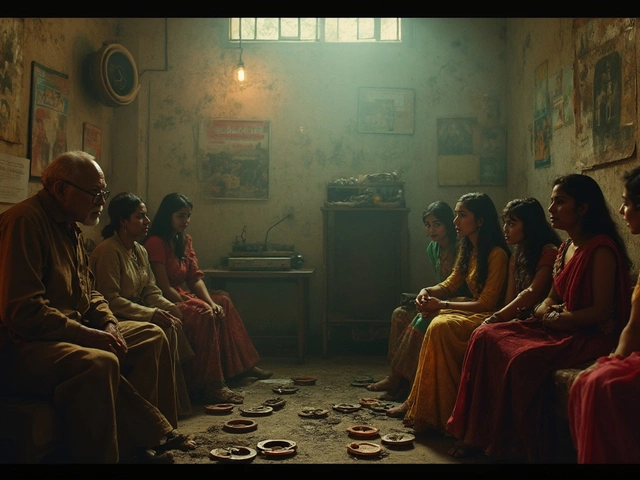
Post A Comment